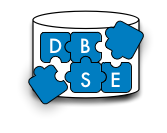Elias Kuiter

M.Sc. Elias Kuiter
AG Datenbanken & Software Engineering (Wiss. Mitarbeiter)
Universitätsplatz 2, 39106 Magdeburg, G29-109 +49 391 67-51680
Universitätsplatz 2, 39106 Magdeburg, G29-109 +49 391 67-51680
Institut für Softwaretechnik und Fahrzeuginformatik (Gast)
Universitätsplatz 2, 38106 Braunschweig, IZ 417
Universitätsplatz 2, 38106 Braunschweig, IZ 417
Vita — Publikationen — Vorträge — Lehre und Abschlussarbeiten
An overview of my thesis topics and software projects is available here. To work on one of these topics or projects, you must have successfully participated in our lecture on software product lines.
